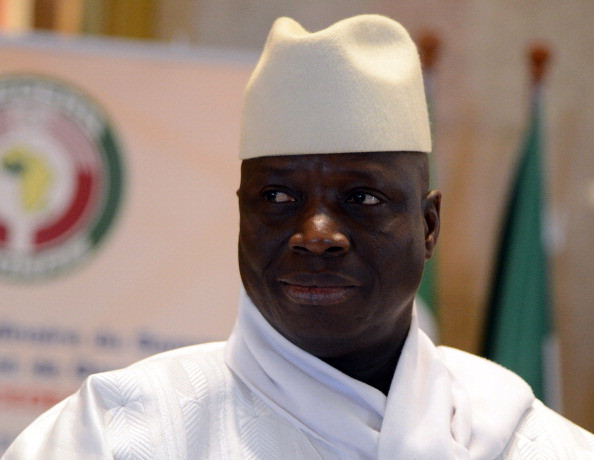Gambia: 'Fight against dictatorship' continues after opposition figure dies in custody

Activists and youths in Gambia are planning protests following the alleged death while in custody of three opposition activists that sparked outrage in the country. Solo Sandeng, secretary of the opposition United Democratic Party (UDP), died after being arrested during a protest in the capital Banjul calling for electoral reforms and the stepping down of President Yahya Jammeh, who has been in power since 1994. Unconfirmed reports alleged two other people also died while in custody.
"Youths are planning protests in the country. They were supposed to start yesterday [18 April] but because of the heavy presence of the military they could not start," Gambian activist and journalist Sainey M K Marenah told IBTimes UK. He has been living in Senegal since he was accused by the Gambian government of publicising "false news" in 2014.
The death of Sandeng and the arrest of dozens of protesters triggered further demonstrations on 16 April, that led to the arrest of UDP leader Ousainu Darboe. The government's reaction to the demonstrations sparked international outrage, with the United Nations (UN) and rights groups calling on the Gambian government to launch an independent investigation on the deaths and arrests.
However, in the first public address on the issue, information minister Sherrif Bojang told AFP he could not confirm the deaths in detention or the arrest of the protesters. He added the protests held last week were unauthorised as people had failed to ask for permission.
"This is the Gambia, we have rules and laws governing us and one of the laws states that before you embark on such a thing, you must seek and obtain [a] permit from the police and this isn't done in this case and they were dispersed and detained," Bojang said.

Reasons behind protests
Gambians will head to the polls in December to vote in 2016's presidential election. President Jammeh has been accused of undermining the power of the opposition by increasing the cost of registering for a political party.
Under the new law, anyone who wants to register a political party or run as presidential candidate has to pay 500,000 dalasis ($11,870; £8,240 ). Critics of the law argue it aims to undermine pluralism in the low-income country, where nearly 50% of the population still live in poverty. The government, however, said the law was necessary to ensure parties were properly organised.
"Protests are very rare in Gambia, this is one of the biggest protests since 2000. Last week's demonstrations were triggered because youths and members of the UPD demanded electoral reforms as we have one of the worst draconian electoral laws in the Gambia," Marenah explained.
"People are not happy, so they decided they would march and peacefully demand electoral changes, but police and paramilitary forces confronted them and the people arrested are still being detained. Gambians are no longer comfortable in the country − we are fighting a dictatorship," he went on alleging. "This man [Jammeh] has ruled the country with fear and intimidation and forced people into exile. I am a victim of the system, there is no rule of law or separation of powers."
'Nothing new'
Jammeh, who survived a coup in December 2014, has been often accused of violating human rights and cracking down on dissidents, journalists and activists. Human Rights Watch (HRW), which was able to confirm only the death of Sandeng, said the government's reaction to the protests is the result of its repressive nature.
"Last week's crackdown on political opposition is nothing new – since Jammeh took power, he has routinely and ruthlessly repressed independent voices, and his security forces have arbitrarily arrested, detained and forcibly disappeared people seen as a threat to the government," HRW's West Africa researcher Jim Wormington told IBTimes UK.
"But Sandeng's death and the arrest of so many opposition supporters are particularly concerning in view of December's presidential elections, and may indicate that the Gambian government will ramp up its repressive tactics as the vote approaches."
The Gambian Embassy in London has not replied to a request for comments on the accusations.
© Copyright IBTimes 2025. All rights reserved.






















